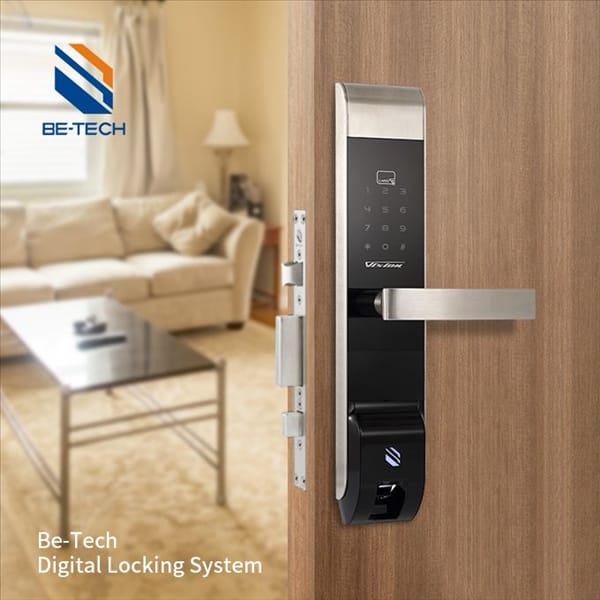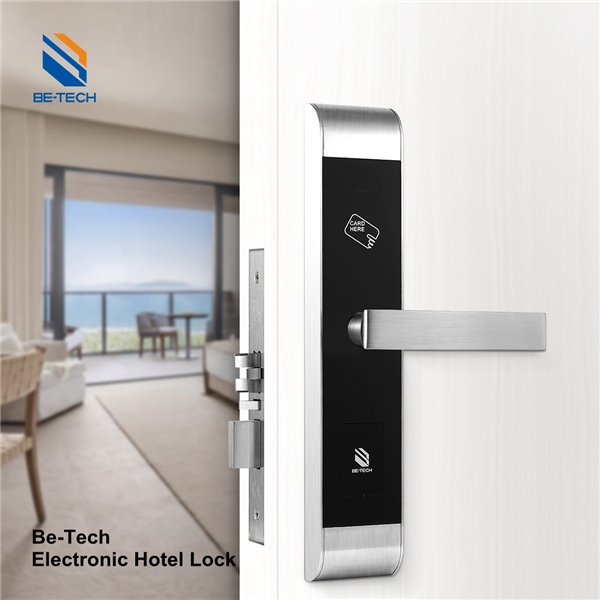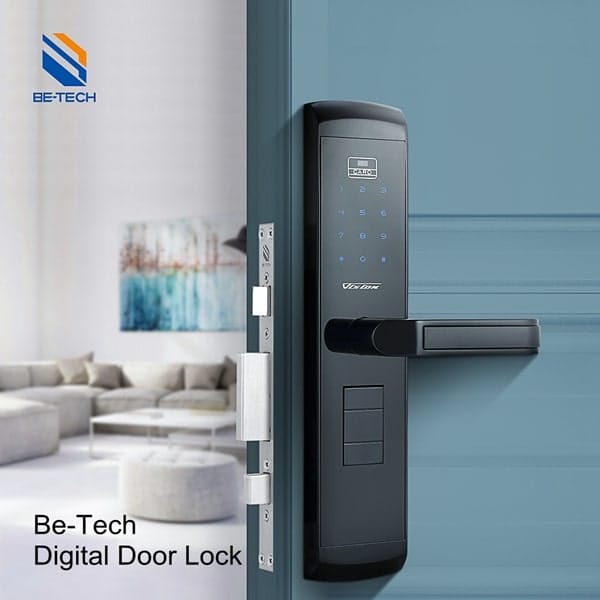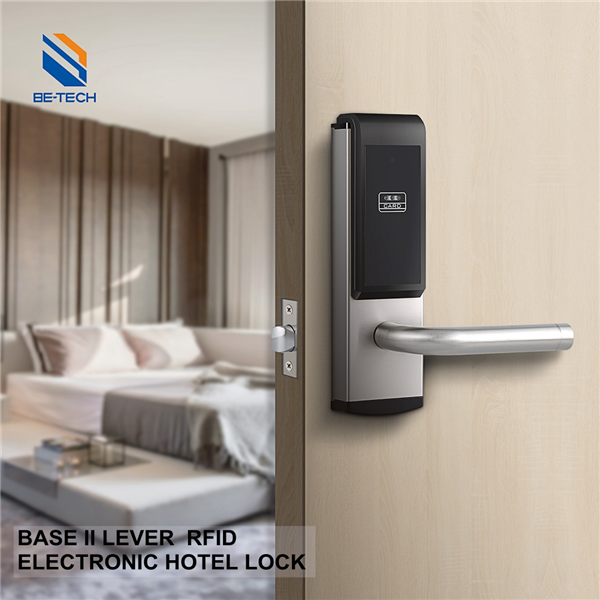A mortise lock case is a lock that is installed inside a door or other object. It requires a pocket, called the mortise, to be cut into the object. Mortise locks are often found on older buildings constructed before the advent of bored cylindrical and tubular locks, but they’ve recently become more prevalent in commercial and high-end residential construction worldwide. They’re extensively used in residential properties of any age in Europe.
What is a Mortise Lock?
A mortise lock is a type of lock that is installed in a pocket, or mortise, that is cut into the door or door frame. This type of lock is generally considered to be more secure than a cylindrical lock, which is installed through a hole that is drilled through the door.
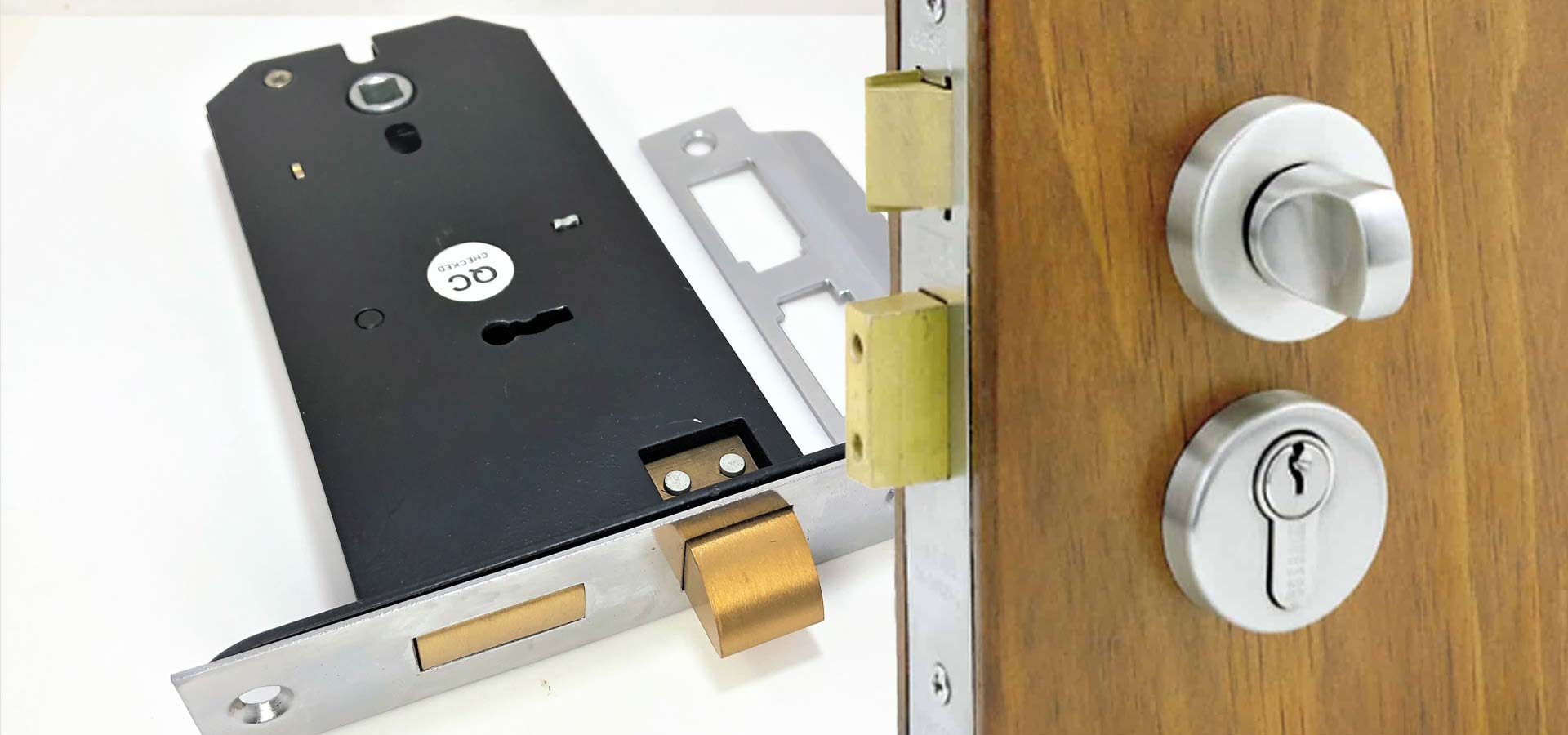
Components of a Mortise Lock:
Mortise locks typically consist of the following components:
- Mortise lock case: This is the body of the lock, which contains the locking mechanism.
- Latch bolt: This is the part of the lock that extends into the strike plate on the door frame to secure the door.
- Deadbolt: This is a more robust locking mechanism that provides additional security.
- Strike plate: This is a metal plate that is mounted on the door frame and receives the latch bolt and deadbolt.
- Key cylinder: This is the part of the lock that accepts the key and operates the locking mechanism.
- Handleset: This is the part of the lock that includes the door handles and the trim.
Advantages of Mortise Locks
- Security: Mortise locks are generally considered to be more secure than cylindrical locks because they are more difficult to pry open. The lock case is installed inside the door, making it more difficult for an intruder to access the locking mechanism.
- Durability: Mortise locks are also very durable and can last for many years. The lock case is made of solid metal, and the moving parts are designed to withstand heavy use.
- Aesthetics: Mortise locks can be very aesthetically pleasing, and they come in a variety of styles to match any décor.
How to Install a Mortise Lock Case
Installing a mortise lock can be done by the average homeowner or digital lock company with a working knowledge of basic carpentry tools and techniques. While many installation professionals use a mortising jig, which makes precise cutting of the pocket a simple task, installing the exterior trim can still be tricky if the installer is inexperienced.
Here is a general overview of the steps involved in installing a mortise lock case:
- Measure and mark the location of the mortise. The mortise should be located on the edge of the door, approximately two-thirds of the way up from the bottom.
- Cut the mortise. This can be done with a chisel, a router, or a mortising machine.
- Install the lock case. The lock case should fit snugly into the mortise.
- Install the strike plate. The strike plate should be mounted on the door frame, aligned with the latch bolt and deadbolt on the lock case.
- Install the handleset. The handleset should be installed according to the manufacturer’s instructions.
- Test the lock. Make sure that the latch bolt and deadbolt engage properly with the strike plate.
Types of Mortise Locks
There are many different types of mortise locks available, but some of the most common include:
- Standard mortise locks: These are the most basic type of mortise lock and are typically used on interior doors.
- Deadbolt mortise locks: These locks include a deadbolt for added security and are often used on exterior doors.
- Keyless mortise locks: These locks do not use a key, instead they can be opened with a code, a card, or a fingerprint.
Mortise Lock Cases vs. Cylindrical Lock Cases
The main difference between a mortise lock case and a cylindrical lock case is how they are installed. A mortise lock case is installed inside a pocket that is cut into the door, while a cylindrical lock case is installed through a hole that is drilled through the door.
Mortise Lock Cases:
- Generally considered more secure than cylindrical locks.
- More durable than cylindrical locks.
- Can be more aesthetically pleasing than cylindrical locks.
- More difficult to install than cylindrical locks.
- More expensive than cylindrical locks.
Cylindrical Lock Cases:
- Less secure than mortise locks.
- Less durable than mortise locks.
- Can be less aesthetically pleasing than mortise locks.
- Easier to install than mortise locks.
- Less expensive than mortise locks.
Applications of Mortise Locks
Mortise locks are frequently used in:
- Residential doors: Mortise locks can be found on interior and exterior doors in homes.
- Commercial doors: Mortise locks are commonly used in commercial buildings, such as offices, retail stores, and hospitals.
- Historic buildings: Many historic buildings still have their original mortise locks.
- High-security applications: Mortise locks are sometimes used in high-security applications, such as banks and government buildings.
Integrating Mortise Locks with Electronic Features
Modern advancements in security technology have led to integrating traditional mortise locks with electronic features. This fusion offers enhanced security and convenience.
Examples of Electronic Features:
- Keyless entry: Electronic mortise locks offer keyless entry options, including:
- Keypad access: Users can enter a PIN code on a keypad to unlock the door.
- RFID card access: Users can use a card with an embedded RFID chip to unlock the door.
- Biometric access: Users can use their fingerprint to unlock the door.
- Smartphone access: Users can unlock the door remotely using a smartphone app.
- Remote monitoring: Some electronic mortise locks can be monitored remotely, allowing users to:
- Track access history: Users can see who has accessed the lock and when.
- Receive notifications: Users can receive notifications when the lock is unlocked.
- Lock and unlock remotely: Users can lock and unlock the door remotely.
Conclusion
Mortise lock cases provide a robust and elegant security solution for various applications. Integrating electronic features further enhances their security and convenience, making them an ideal choice for modern homes and businesses. Be-Tech is a well-known manufacturer of smart locks and digital door lock systems, including electronic mortise locks. When choosing a mortise lock case, consider the level of security, desired features, and aesthetic preferences. Whether for a residential or commercial property, a mortise lock case can offer peace of mind and enhance overall security.

